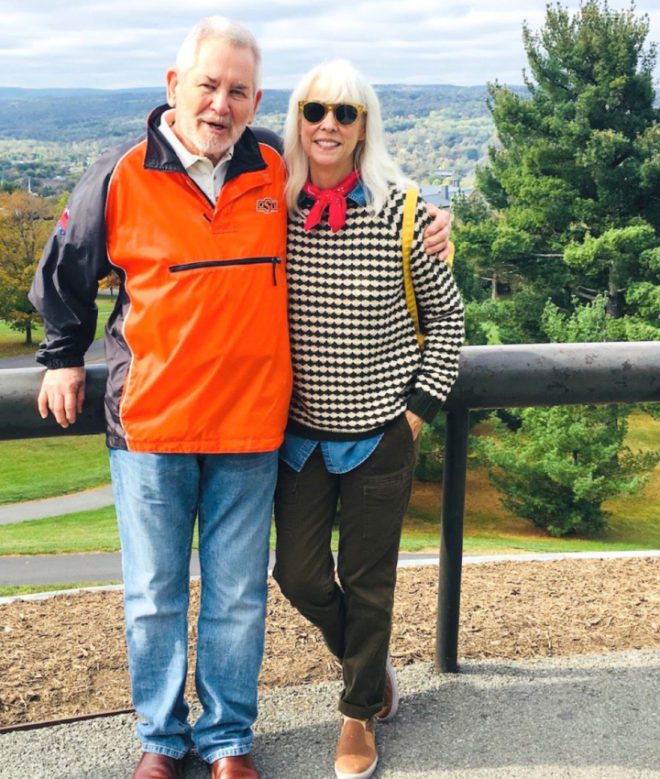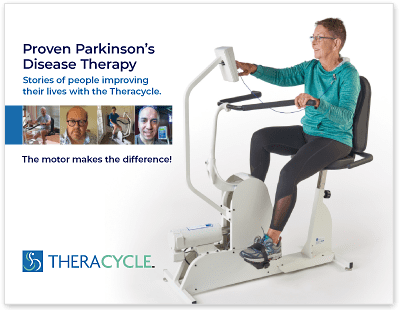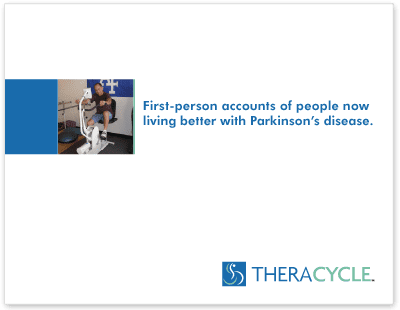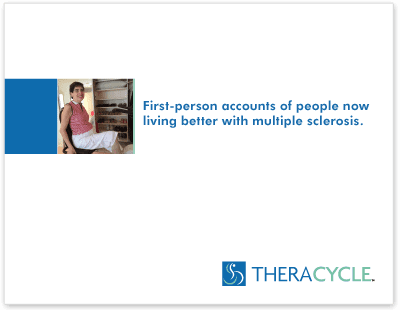- ›
- Stories
- ›
- Parkinson’s Disease
- ›
- Taking on Parkinson’s: Proactive Living and Symptom Management
Stories
Taking on Parkinson’s: Proactive Living and Symptom Management

Norris uses medicine, exercises and involvement to help him battle the disease that has brought with it visual and auditory hallucinations as well as tremors.
· Patty Miller | The Edmond Sun, published on 8/28/18 ·
A well-known illness can manifest itself unexpectedly through hallucinations, both visual and auditory.
The non-motor symptoms of Parkinson’s Disease Psychosis (PDP), a surprising and common aspect of Parkinson’s disease, is only reported by 10-20 percent of caregivers or patients, even though as many as 50 percent of people experiencing Parkinson’s may be affected by them.
It may be because they are embarrassed or do not realize that non-motor symptoms are part of Parkinson’s disease.
Edmond resident Glenn Norris, 78, spent his life educating children as young as five in kindergarten all the way through college. Even as a professor, he had a thirst for knowledge, which proved useful after he was diagnosed with Parkinson’s disease.
HALLUCINATIONS, DELUSIONS
Approximately one million Americans live with Parkinson’s disease, but the onset of hallucinations, often visual or auditory, and delusions often come as a surprise to patients and caregivers despite symptoms affecting more than half of people with Parkinson’s over the course of their disease,” according to information provided by the Parkinson’s Foundation.
Parkinson’s disease is more than tremor and stiffness. For Norris, it led to a host of symptoms, including visual and audio hallucinations and later tremors.
Norris received a master’s degree and was on his way to earning a doctorate. He had either taught or acted in an administrative capacity for 40 years concluding his career at Oklahoma State University where he worked as an adviser in the teaching department.
Initially Norris believed the changes he was experiencing were from getting older.
“I was having difficulty with sleeping and when I would wake up I would stay awake,” Norris said. “I also had some intestinal problems that at first I thought were indigestion.”
Norris said he had an increasing anxiety along with claustrophobia that all seemed to develop along at the same time of the diagnosis.
“I had a tremor in my right hand and at 72 years of age I was seeking a new primary care doctor,” Norris said. “By the end of the first session she referred me to a neurologist.”
Norris said it didn’t take any time for the neurologist to diagnose him as having Parkinson’s disease.
“The non auditory didn’t start immediately, but four years into the diagnosis I had the auditory hallucinations,” Norris said.
Norris said experiencing auditory hallucinations was very abrupt, and he started hearing birds in the attic when he was in the house alone.
“It was so vivid I knew I needed to get someone out there and see about closing that opening (where the birds were entering),” Norris said.
He said he moved to the other end of the house but it was still loud.
“They were just as vivid as if I was under a tree,” Norris said.
Hallucinations and delusions associated with Parkinson’s disease can be addressed by a Parkinson’s disease specialist.
Despite support from his Parkinson’s doctors and the Parkinson’s Foundation of Oklahoma, Glenn and his wife, Jo Anne Alexander, were caught off guard when Glenn claimed to hear birds all over the house. Jo Anne kept searching for those elusive birds (worried about uninvited guests), but eventually had to explain to Glenn that all was quiet in the house. Then, they realized Glenn was hearing something that wasn’t real—an auditory hallucination.
MEDS HELP LIFE QUALITY
“Since he started on medication (NUPLAZID) he doesn’t go around hearing birds and his quality of life is better,” Jo Anne said. “The auditory were non-stop but the visual hallucinations are random.”
He is taking NUPLAZID (pimavanserin), described as the first and only treatment indicated for hallucinations and delusions associated with Parkinson’s disease.
Jo Anne said, “We have been surprised and grateful and hopefully more and more people will become aware of the medication.”
Glenn called his neurologist who prescribed him the medicine, but it still had to be regulated because of the side effects he experienced.
“Once I got the correct dosage I didn’t have any more difficulties with the medication, and the auditory hallucinations stopped,” Norris said.
Even though the auditory hallucinations stopped, the visual hallucinations started later.
“Since starting the medication I see things that aren’t really there at the periphery of my vision,” Norris added. “They are out in the fringe of my vision and not nearly as bothersome as the auditory hallucinations.”
Norris said he believes it is the medication he is taking that is working.
Information shared by the makers of NUPLAZID stated that more than 50 percent of people with Parkinson’s will experience hallucinations or delusions over the course of their disease.
“I am solid with the fact this (medication) is helping because I think I missed the pills two days and the birds were back,” Norris said.
STILL ACTIVE
He encourages other people who are living with Parkinson’s disease to talk with their doctor about managing the challenging non-motor symptoms, including treatment of hallucinations and delusions.
“I don’t think anything of it (having Parkinson’s disease),” Norris said. “I used to have two speeds, slow and slower. That was pre diagnosis. Now I have slower and extra slower.”
His handwriting has become terrible, Glenn said, because of the tremors.
Today, Glenn is active with the Parkinson’s Foundation of Oklahoma, enjoys woodworking and gardening, is a reading volunteer in a local kindergarten classroom, and he exercises almost daily. When not involved with his numerous activities he and Jo Anne spend time with their family.
Glenn pushes himself to stay active and to do things.
In addition to making things in his workshop, Norris said he tries to have regular and serious, targeted exercise.
“One day a week I go to a class at a rehabilitation center,” Norris said. “We get exercises individually. With a lot of the exercises, I bring them home and use a Theracycle. I set the time and intensity on the bicycle and I try to ride it most days.”
A Theracycle is a motorized bicycle designed as a means of physical therapy through exercise and movement for those living with Parkinson’s or other mobility disorders.
Glenn works in the yard three days a week and has started a program with the OKC Parkinson’s Foundation.
“I go to Special Care in Oklahoma City and read to kindergartners,” Norris said, “and I have been doing it for six years.”
Special Care is a combination daycare and school for special needs children.
“I work with a kindergarten class in which the children are from 5 to 7 years old and where most of the children are totally immobile to ambulatory with restrictions,” Glenn said.
Norris said it makes him anxious to be in a car, and he has a 14-year-old truck with a little over 60,000 miles on it.
“I think of Parkinson’s as constantly restricting things in my life,” Norris said. “It is a gradual decline that could go on for 20 years.”
KEY IS INVOLVEMENT
JoAnne retired in the spring.
“Now she will be primarily a grandmother,” Glenn said. “She goes with me to a doctor’s appointment. I feel that is extremely important. I make notes before I go and Jo Anne takes notes and fills me in on what I miss. She has become my driver as well.”
Glenn said when he first received the Parkinson’s diagnosis he read in every book how people deal with a diagnosis of Parkinson’s.
“I don’t believe I ever knew anyone who had Parkinson’s so I came home and started reading about it,” Norris said. “When I found exercise, doctors, medication and involvement were extremely important I added involvement to my daily routine.”
He said involvement for him was doing things for others and reaching out to other people.
“I just find that to be therapeutic,” Norris said. “I have recruited other readers. I had two gentlemen that for them reading was the high point of the week. That is pretty much the same way with me.”
Before Glenn had the Parkinson’s diagnosis he had been given a diagnosis of Alzheimer’s disease.
“I saw it (Parkinson’s) as an opportunity,” Glenn said. “Even though it is a horrible, horrible disease. We were relieved and thrilled. Mom had Alzheimer’s and Dad took care of her 10 years, and my brother was diagnosed with Alzheimer’s.”
Glenn said he felt like he had been given a reprieve and he wanted to learn how he can manage his diagnosis of Parkinson’s.
“Parkinson’s disease for us has become a wonderful opportunity to learn to do other things together, including reaching out and becoming involved with someone else,” Norris said.







